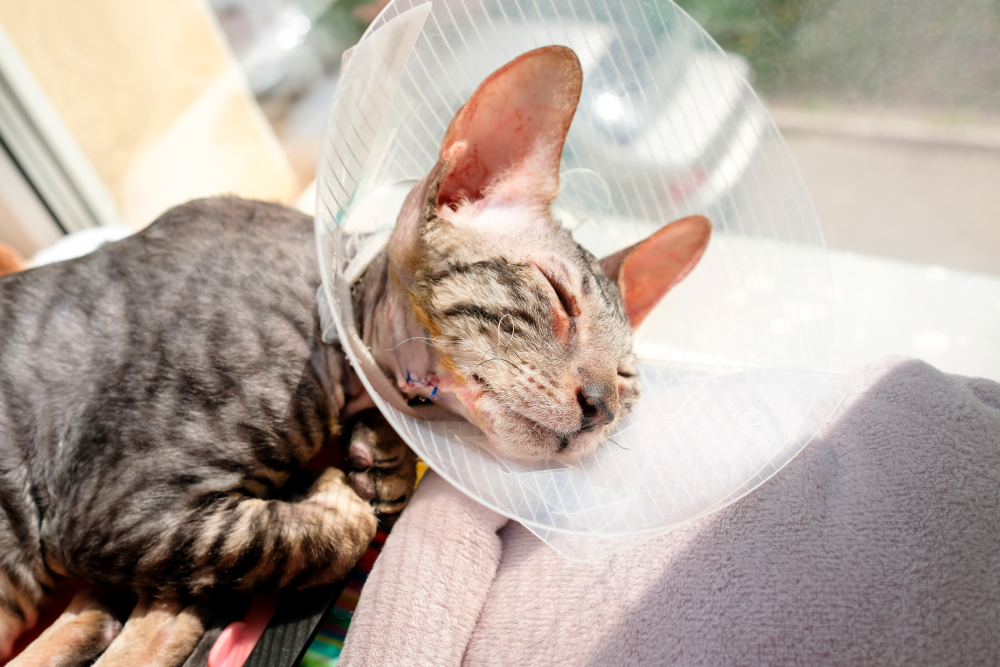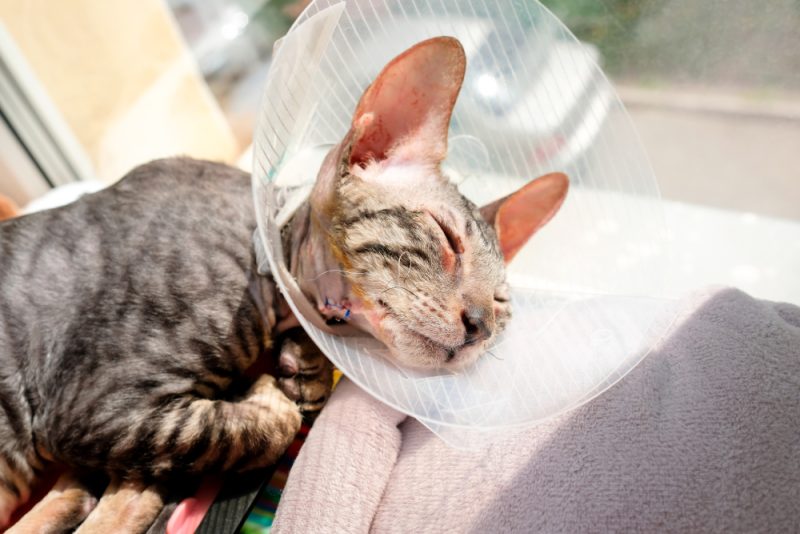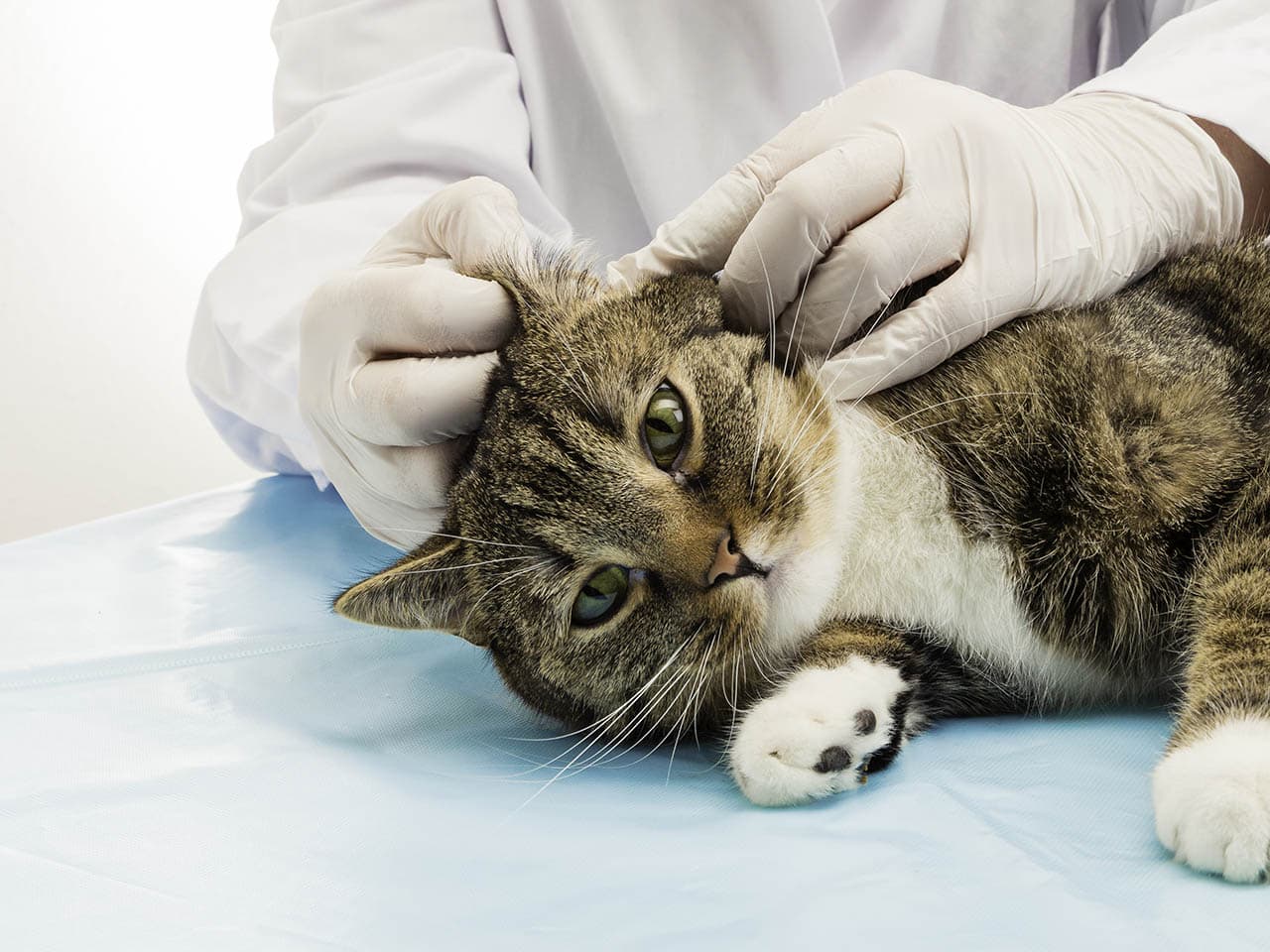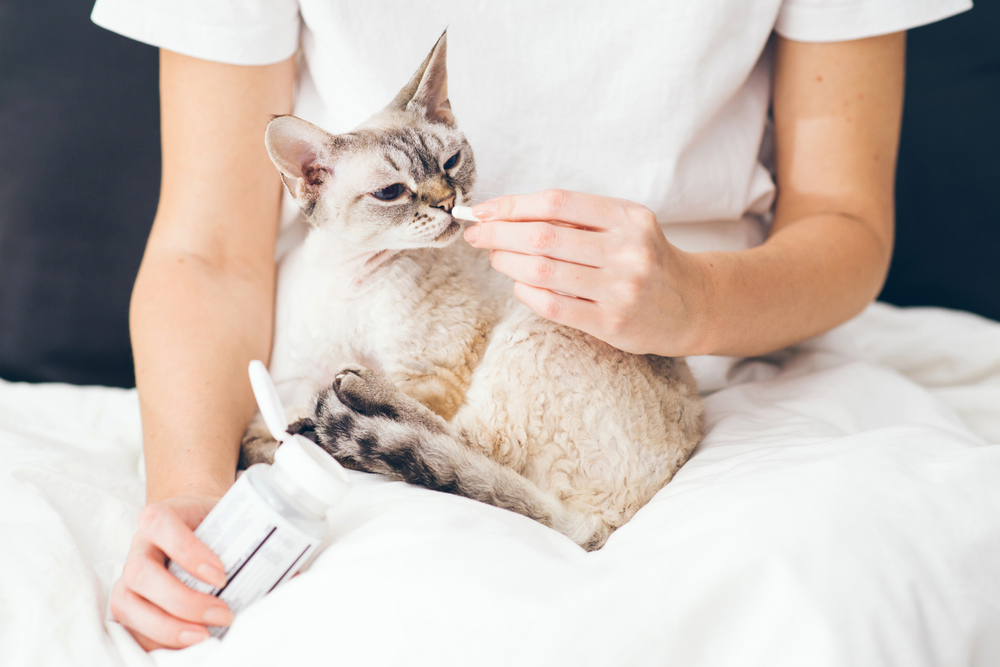When your feline friend undergoes surgery, it can be a scary time. What can be even worse is when your cat comes home safe and sound from the procedure but is now experiencing strange issues. You know that you should follow your veterinarian’s post-surgery instructions to help avoid potential complications, but should you be concerned about your cat coughing following a surgery?
A cough after surgery is typically the result of minor irritation due to the endotracheal tube that your vet used during the surgery. It will typically go away within a few days, but be sure to contact your vet if it doesn’t or if it gets worse.
Is It Normal for Cats to Cough After Surgery?
The first part of any type of surgery in cats is sedation and anesthetization. This can involve a combination of injectable sedatives, intravenous medications, and gas anesthesia. To administer the anesthesia, your cat will have a tube placed down their mouth and into their trachea to deliver the gases and oxygen directly to their lungs.
This tube is made of firm plastic and sized to fit snugly into the trachea. As you can imagine, though, this is a foreign object to the trachea, which normally only feels air going in and out of the lungs. While it’s a necessary component of the whole operation, the endotracheal tube can cause irritation afterward, which can present as a cough.
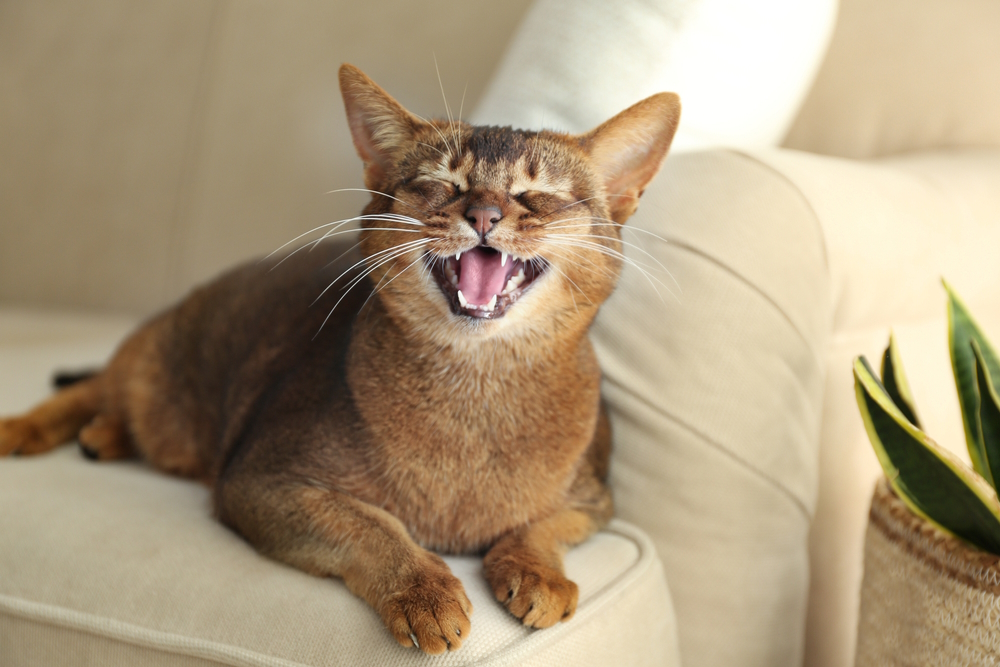
How Long Does Post-Surgery Cough in Cats Last?
If your cat’s post-surgical cough is caused by irritation from an endotracheal tube, it will take the trachea a few days to heal. That means your cat could have a mild cough for 2 or even 4 days post-surgery. This time frame can be completely normal, as long as the cough isn’t severe, doesn’t get any worse, and isn’t accompanied by other signs, such as a fever, inappetence, runny nose, or difficulty breathing.
If the cough doesn’t go away within a few days or you notice any of these signs, see your veterinarian.
How Do You Get Rid of a Cat’s Cough After Surgery?
Your cat’s post-surgical cough will likely go away on its own within a few days following surgery. Just make sure they are eating and drinking normally. Your cat should be relaxing, not overexerting themselves, which can lead to more coughing. Follow your vet’s other post-surgical instructions, and have them rechecked if you’re at all concerned.
What Are the Side Effects of Anesthesia in Cats?
Your veterinarian will likely keep your kitty for a while following surgery to monitor their recovery from the procedure and anesthesia. Even with these safety measures in place, though, some cats might not be 100% back to normal by the time they go home.
Anesthesia can take a bit of time to completely wear off, so don’t be surprised if your kitty acts slightly differently for the first 24–48 hours following surgery. Signs that you may see include:
- Nausea: The medications used can make your cat drool more or not want to eat. Withhold food for the time allotted by your vet, and then introduce small amounts more frequently until your cat regains their normal appetite.
- Grogginess: It can take cats a while to fully wake up following anesthesia. Just make sure to provide them with a safe place to sleep it off and comfort them as needed.
- Shivering: Anesthesia can mess with a cat’s body temperature, which can take time to regulate. Provide your kitty with a comfy bed in a quiet, heated room to help them stay warm.
- Disorientation/Confusion: It may take a while for your cat to think clearly. Give them a safe place to recover, and offer them comfort with familiar objects or attention.
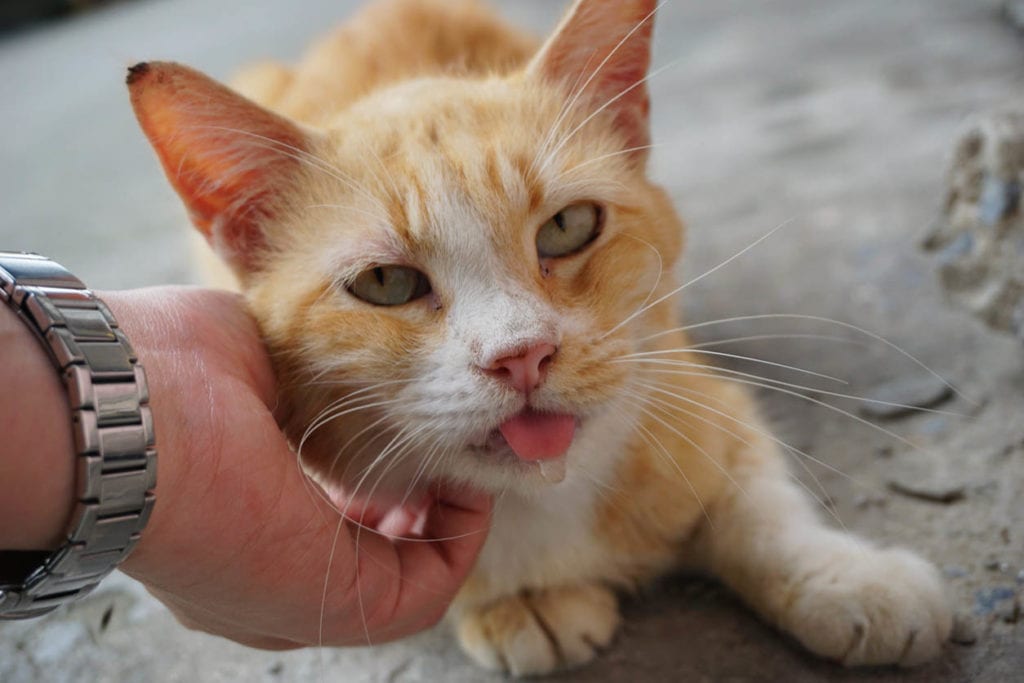
Conclusion
If your cat comes home with a cough following surgery, it’s likely residual irritation from the endotracheal tube used for gas anesthesia, and the cough should go away within a few days. If it lasts longer than that or gets worse or your cat starts showing other concerning signs, be sure to contact your veterinarian.
Featured Image Credit: Elena Loginova, Shuttetstock

